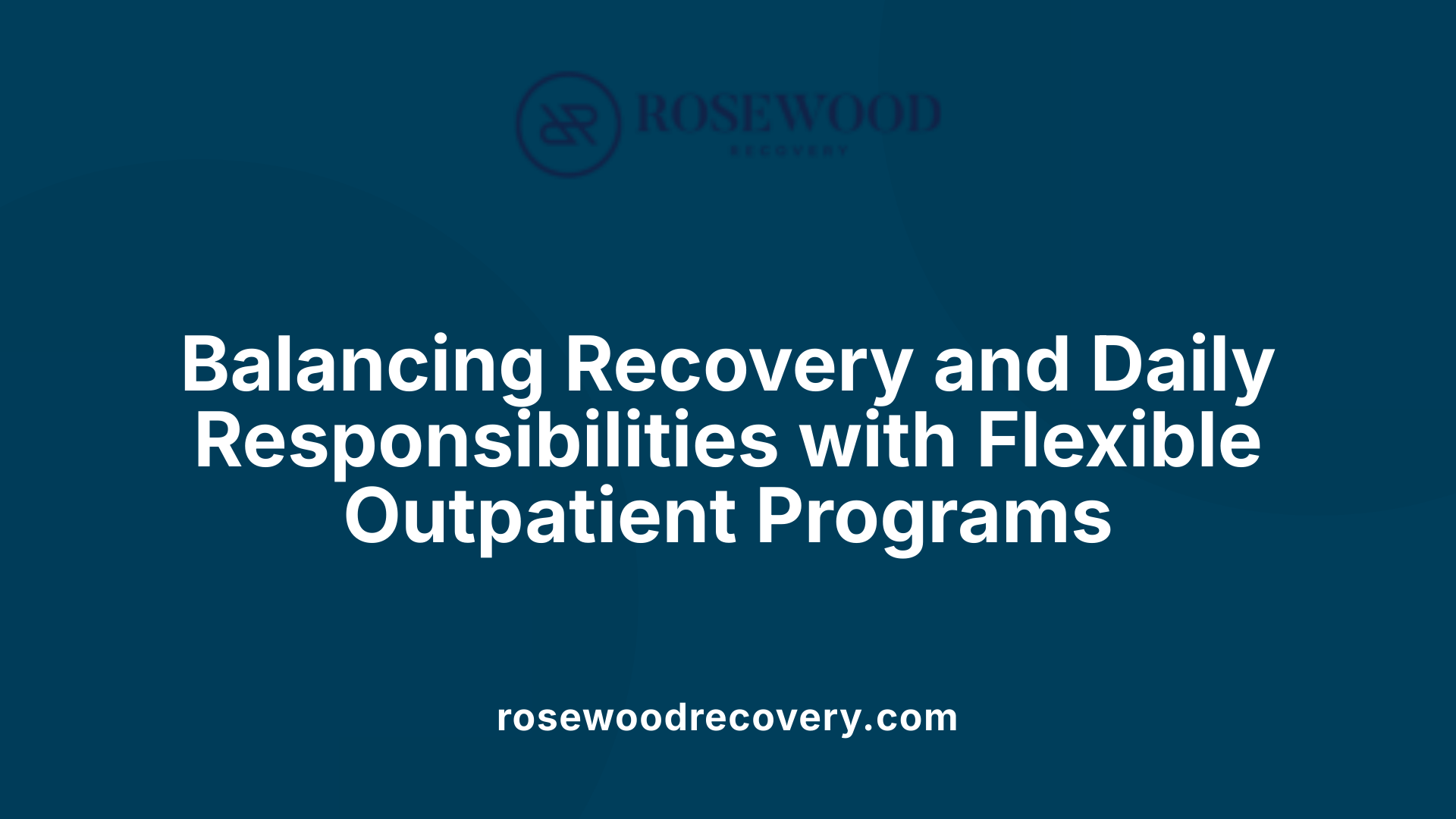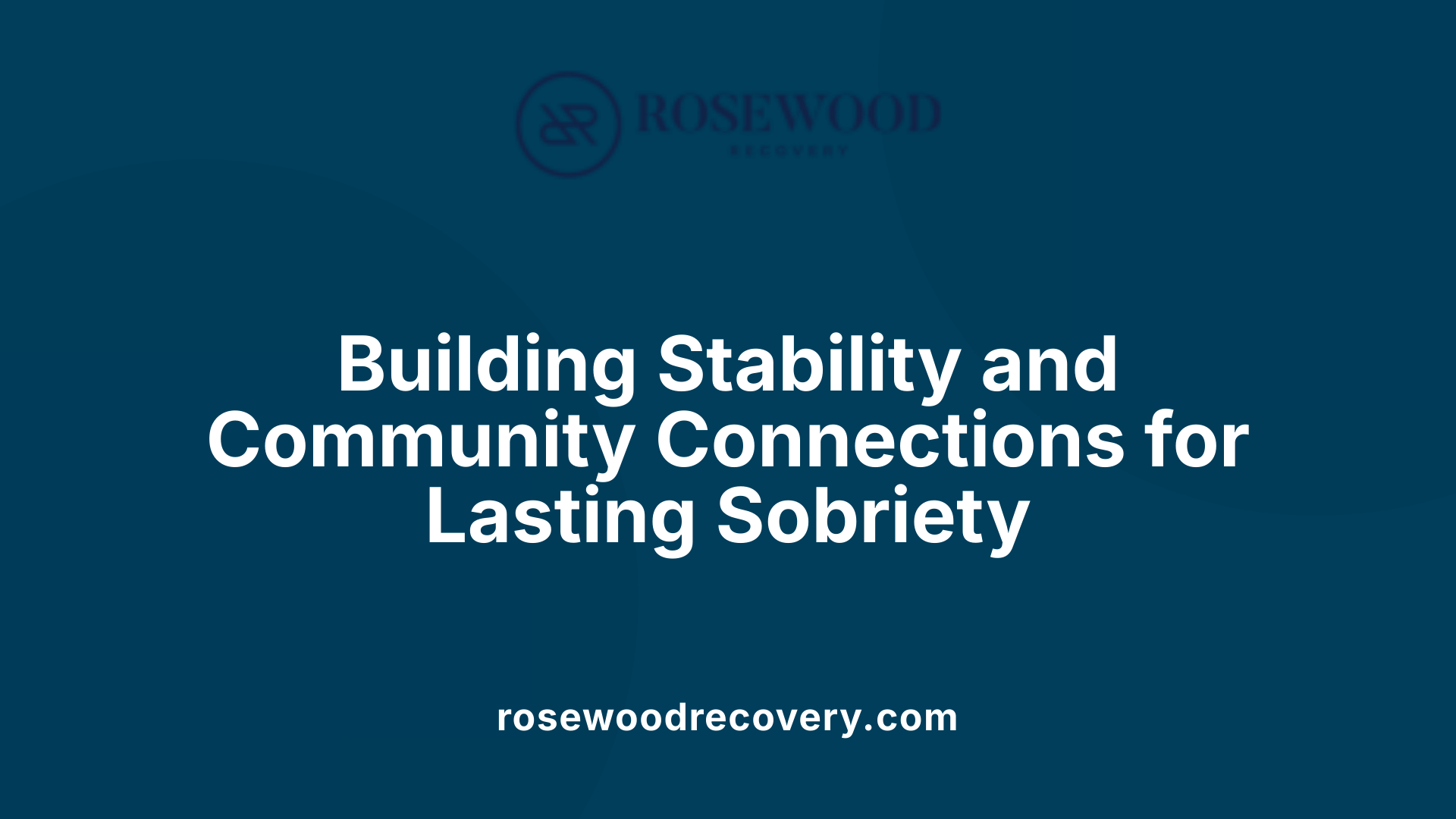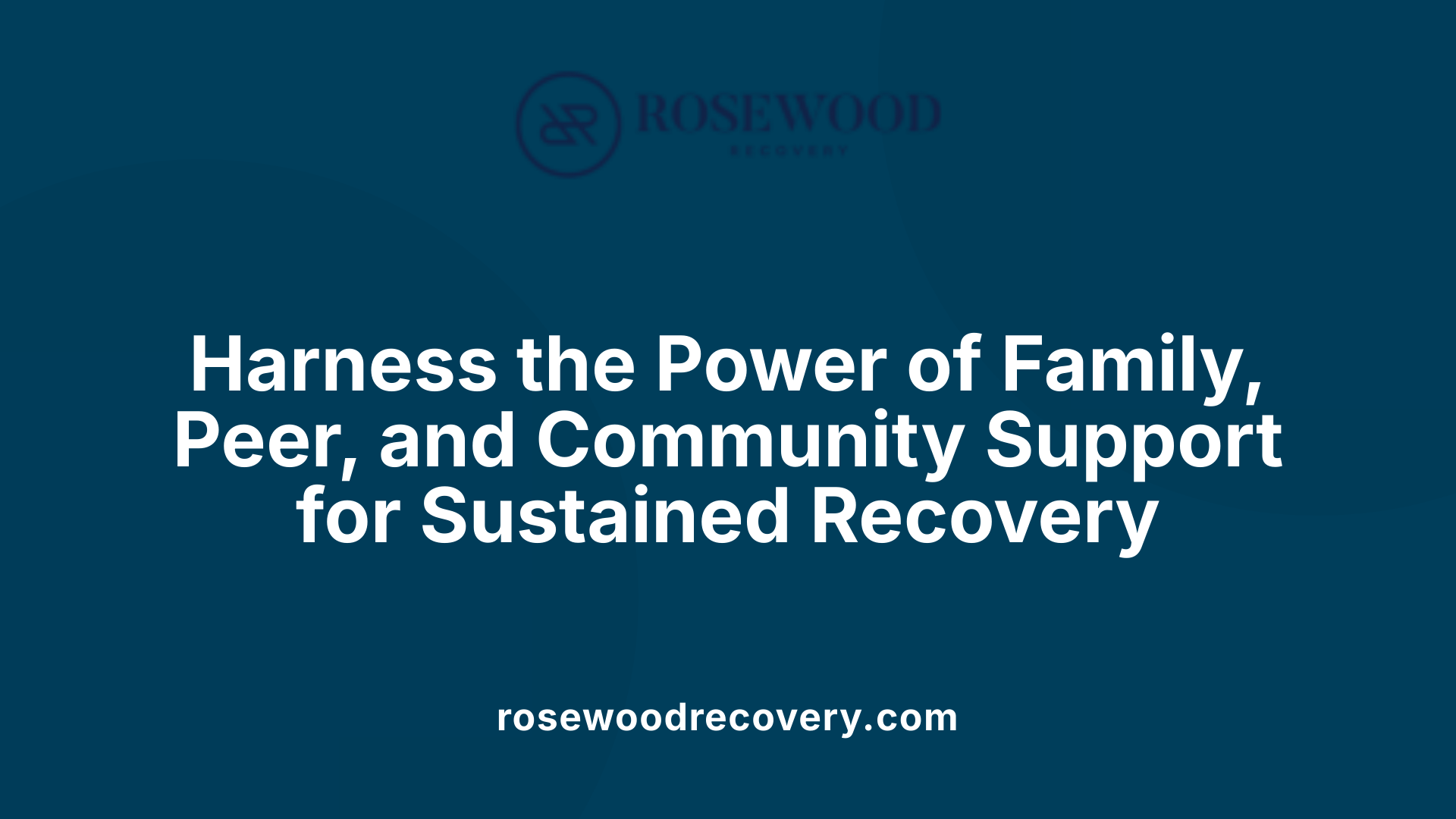Maintaining Life’s Demands While Focusing on Recovery
For many individuals navigating the path to mental health and substance abuse recovery, maintaining work and family responsibilities can be challenging. Outpatient programs have emerged as vital support systems that allow individuals to seek effective treatment while continuing their daily routines. This article explores how outpatient treatment options—particularly Intensive Outpatient Programs (IOPs)—are structured to provide flexibility, support long-term recovery, and support personal and professional life harmony.
Flexible Scheduling and Tailored Treatment Options

How do outpatient programs support individuals in maintaining their work and family life during recovery?
Outpatient programs play a crucial role in helping individuals juggle their recovery with daily responsibilities. They offer flexible scheduling options that seamlessly fit into work and family routines, encouraging continued participation in therapy while maintaining normal life activities.
Programs such as Intensive Outpatient Programs (IOPs) and Partial Hospitalization Programs (PHPs) provide tailored care based on personal needs, severity of symptoms, and daily commitments. Many sessions are scheduled during evenings or weekends, reducing the chance of conflicts with work hours or family obligations.
Living at home while receiving treatment allows participants to practice coping skills in real-world scenarios, strengthening their recovery efforts. Family involvement through therapy or support sessions further enhances the support network, ensuring a stronger foundation for ongoing recovery and adherence.
Overall, outpatient structures foster a supportive environment where individuals can pursue sobriety without sacrificing their responsibilities, promoting sustainable recovery.
Supporting Long-Term Recovery and Community Integration

In what ways do outpatient programs support recovery while allowing clients to manage daily responsibilities?
Outpatient programs enable individuals to continue with their daily routines while receiving essential treatment for mental health or substance use issues. These programs are designed with flexible schedules that include various therapy sessions, such as individual counseling, group therapy, and medical support, allowing clients to balance their recovery with work, school, and family commitments.
By allowing individuals to live at home, outpatient programs help maintain familiar environments and routines, which can foster stability and a sense of normalcy. Different levels of outpatient care, including Intensive Outpatient Programs (IOPs) and Partial Hospitalization Programs (PHPs), provide tailored support depending on the severity of the condition and specific needs.
Community involvement plays a crucial role, with peer support groups and family therapy strengthening the recovery journey. These support systems help build a solid network for ongoing encouragement and accountability. Overall, outpatient programs facilitate continuous treatment, skill building, and accountability, all while respecting and integrating clients' daily responsibilities.
What role do outpatient programs play in helping individuals recover without disrupting their work or family life?
Outpatient programs are vital in fostering recovery while minimizing disruption to individuals’ work and family lives. They offer flexible treatment options that can be scheduled around personal obligations, including evenings and weekends, making it easier to attend therapy without missing work or family commitments.
These programs include graduated levels of care, such as standard outpatient therapy, IOPs, and PHPs, which can be adapted to match the individual’s needs and recovery stage. The ability to live at home and practice coping strategies in real-world settings is essential for establishing sustainable recovery habits.
Furthermore, programs often incorporate skills training and support mechanisms that reinforce healthy habits, stress management, and relapse prevention. Family involvement through therapy and support groups enhances understanding and cooperation in the recovery process.
By integrating treatment into daily life, outpatient programs promote persistent sobriety and wellbeing, offering a balanced approach that respects personal and professional responsibilities.
How do outpatient programs support individuals in maintaining their work and family life during recovery?
Outpatient programs support recovery by providing adaptable scheduling options that fit seamlessly into individuals’ busy lives. These programs range from standard outpatient sessions to more intensive formats like IOPs and PHPs, which typically involve attending therapy three to five days a week for a few hours.
Many services are offered during evenings and weekends, reducing conflicts with work schedules and family responsibilities. This flexibility allows clients to continue working and fulfilling family roles without interruption.
Living at home during treatment encourages the practice of coping skills in everyday situations, reinforcing long-term recovery. Family involvement through therapy or support groups further bolsters the individual’s support network, creating a collaborative effort in maintaining sobriety.
Supportive community resources, peer groups, and ongoing follow-up care help sustain motivation and accountability, making outpatient programs a practical choice for those committed to balancing recovery and daily responsibilities.
Engaging Support Networks and Community Resources

How does family support and family therapy contribute to outpatient recovery?
Family involvement is a fundamental aspect of outpatient treatment success. Family support and family therapy help create an environment conducive to recovery by improving communication, understanding, and emotional support within the household. Family therapy sessions enable members to learn about mental health and substance use issues, reducing misunderstandings and fostering empathy.
When family members are actively engaged, they can better support the individual’s efforts to maintain sobriety and mental wellness. They also learn effective ways to handle conflicts and support coping strategies. This strong familial backing often results in improved treatment adherence and longer-lasting recovery, as the home environment becomes a source of encouragement rather than stress.
How can building peer support networks assist individuals during outpatient treatment?
Constructing peer support networks is vital for sustaining motivation and resilience during outpatient recovery. Peer groups, whether through support groups or community programs, offer a shared space where individuals can exchange experiences, challenges, and successes.
Peer support fosters a sense of belonging and reduces feelings of isolation often associated with mental health and substance use issues. Listening to others facing similar struggles provides reassurance and useful coping strategies. Engagement in peer networks also promotes accountability, as members motivate each other to stay committed to their recovery plans.
What role do community resources and extracurricular activities play?
Community resources and extracurricular activities contribute significantly to the long-term success of outpatient recovery. These resources include local support groups, recreational clubs, educational workshops, volunteer opportunities, and mental health services.
Participation in activities such as sports, art classes, or volunteering helps individuals build a sober social network and develop new interests. These activities promote a balanced lifestyle, improve emotional well-being, and provide constructive outlets for stress.
By connecting with community resources, individuals also access ongoing education and support, which reinforce their recovery efforts and foster a sense of belonging.
| Support Type | Description | Benefits |
|---|---|---|
| Family Support & Family Therapy | Involves family members in therapy sessions and recovery planning | Fosters understanding, improves communication, strengthens home environment |
| Peer Support Networks | Support groups like 12-step programs or peer-led groups | Reduces isolation, enhances motivation, promotes shared learning |
| Community Resources & Activities | Local clubs, workshops, volunteer programs, recreational activities | Builds social skills, provides sober recreation, develops new interests |
These support systems work synergistically to provide a comprehensive foundation for enduring recovery. They help individuals navigate the challenges of balancing work, family, and personal health, thereby increasing the likelihood of a positive long-term outcome.
Cost-Effectiveness and Community Integration of Outpatient Programs
Outpatient treatment programs, particularly Intensive Outpatient Programs (IOPs), are recognized for their cost-effectiveness compared to inpatient care. Inpatient treatments usually involve high costs due to 24-hour supervision, residential lodging, and extensive medical services. Conversely, outpatient programs reduce these expenses by utilizing community-based settings that offer structured therapy sessions without hospitalization costs.
The financial savings are significant, especially since individuals can continue earning income through work or school while receiving treatment. This reduces the economic burden of treatment for both individuals and healthcare systems. Additionally, outpatient programs often align with insurance policies that favor lower-cost, outpatient options, making them more accessible.
Studies comparing outpatient programs with inpatient care show similar success rates in achieving sobriety and managing mental health issues when programs are tailored to individual needs. These findings underscore the value of outpatient treatment as a practical alternative for many, especially for those with less severe symptoms or transitioning from inpatient care.
Community involvement is a fundamental aspect of outpatient treatment. These programs foster social reintegration by encouraging patients to practice coping strategies, participate in community activities, and reconnect with social networks outside clinical settings. Such integration helps build stability and resilience, reducing feelings of isolation often associated with recovery.
Building sober relationships forms a cornerstone of community reintegration. Outpatient programs emphasize family therapy, peer support groups, and community resources that facilitate healthy social interactions. These relationships not only provide emotional support but also serve as accountability partners, reinforcing sobriety and personal growth.
The structure of outpatient care offers flexibility and adaptability, accommodating individuals’ schedules and responsibilities. Typical IOPs include 3 to 5 days of sessions per week, each lasting between two to four hours, with options for morning, afternoon, or evening classes. This scheduling allows participants to maintain employment, attend school, and manage family duties while engaging in comprehensive treatment.
Moreover, outpatient programs often involve a variety of therapeutic modalities, such as Cognitive Behavioral Therapy (CBT) and Dialectical Behavior Therapy (DBT), tailored to individual mental health and substance use issues. Family and social support systems are actively integrated into the treatment process, strengthening the person’s environment and ensuring ongoing encouragement for recovery.
Community engagement is vital beyond the duration of formal treatment. Support groups, peer-led meetings, and community events help reinforce sober living and foster a sense of belonging. These activities contribute to long-term stability and help prevent relapse by promoting continuous personal development and community participation.
In summary, outpatient programs offer a balanced approach that combines effective, evidence-based treatment with economic benefits and robust community involvement. They enable individuals to address their health needs while maintaining the social and professional roles essential to their overall well-being.
| Aspect | Description | Additional Insights |
|---|---|---|
| Cost Benefits | Lower costs than inpatient, reduce financial and facility burdens | Cost-effective for individuals and healthcare systems |
| Community Involvement | Facilitates social reintegration through real-world practice | Encourages community participation and peer support |
| Building Sober Relationships | Strengthened via family therapy and support networks | Critical for sustained recovery and accountability |
| Scheduling Flexibility | Sessions 2-5 times per week, adaptable to personal schedules | Supports work, school, and family responsibilities |
| Therapeutic Modalities | Includes CBT, DBT, family therapy, skill workshops | Customized to individual needs |
| Long-term Support | Maintains recovery with follow-ups and community support | Ensures sustainability of treatment gains |
Choosing outpatient treatment encompasses more than clinical care; it fosters independence, community ties, and long-lasting sobriety, making it a practical choice for many seeking to balance their recovery with everyday life.
Sustaining Success Through Flexible and Supportive Care
Outpatient programs serve as an essential bridge between treatment and everyday life, empowering individuals to recover without sacrificing their work, family, or social roles. With their flexible structure, personalized approaches, and supportive community engagement, outpatient care provides an accessible, cost-effective, and effective pathway to long-term sobriety and mental health stability. By integrating therapy into daily routines, these programs enable individuals to build resilient, supportive networks that foster ongoing recovery and a balanced, fulfilling life.
References
- How to Find Work-life Balance During Outpatient Treatment?
- Is an Outpatient Program The Right Choice For Me?
- How to Balance Work, Life, and an Intensive Outpatient ...
- How an Intensive Outpatient Program Supports Long-Term ...
- Intensive Outpatient Fits Recovery Into Daily Life
- The Flexibility of Outpatient Programs
- Guide to Intensive Outpatient Programs (IOPs)




